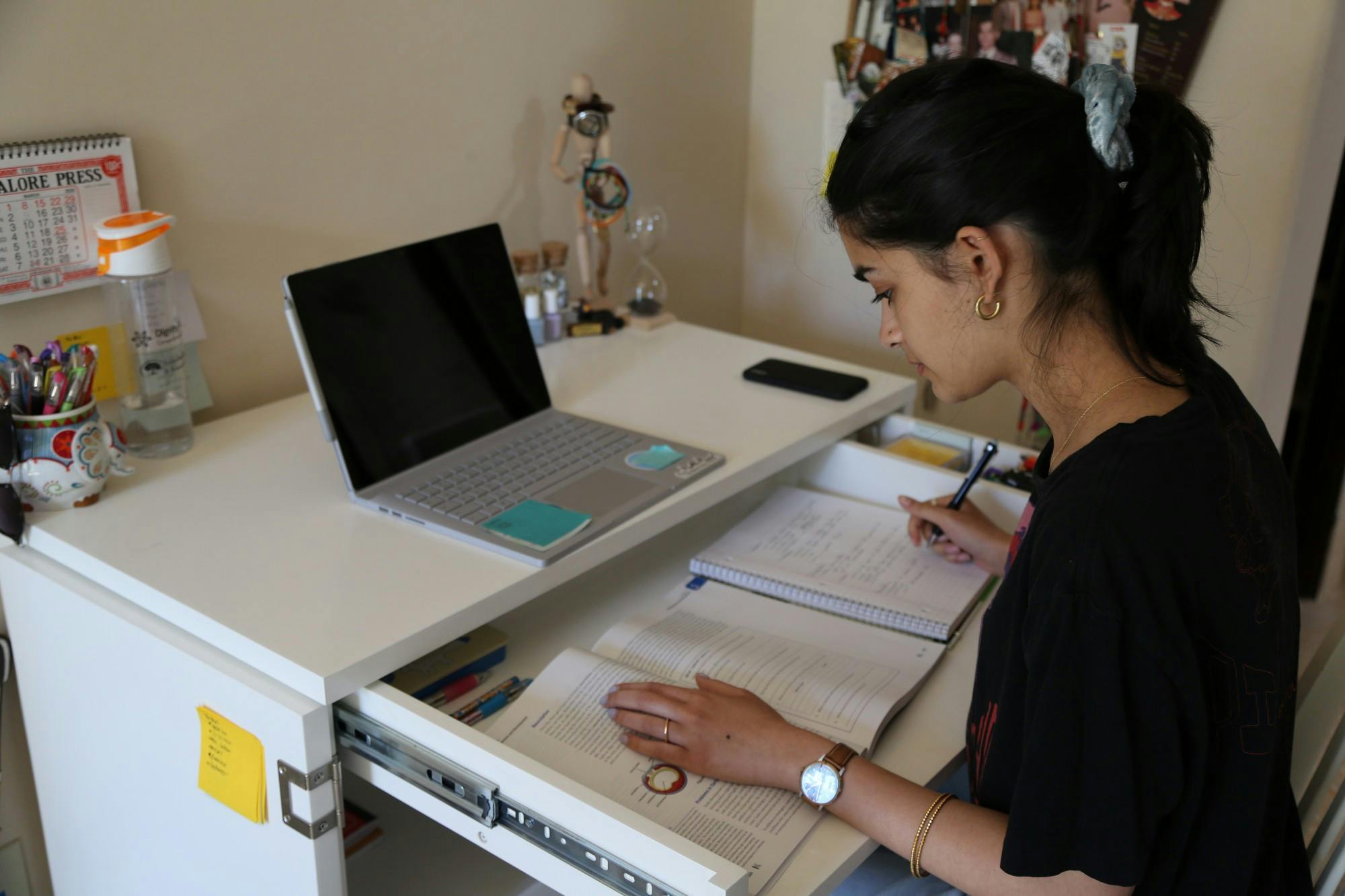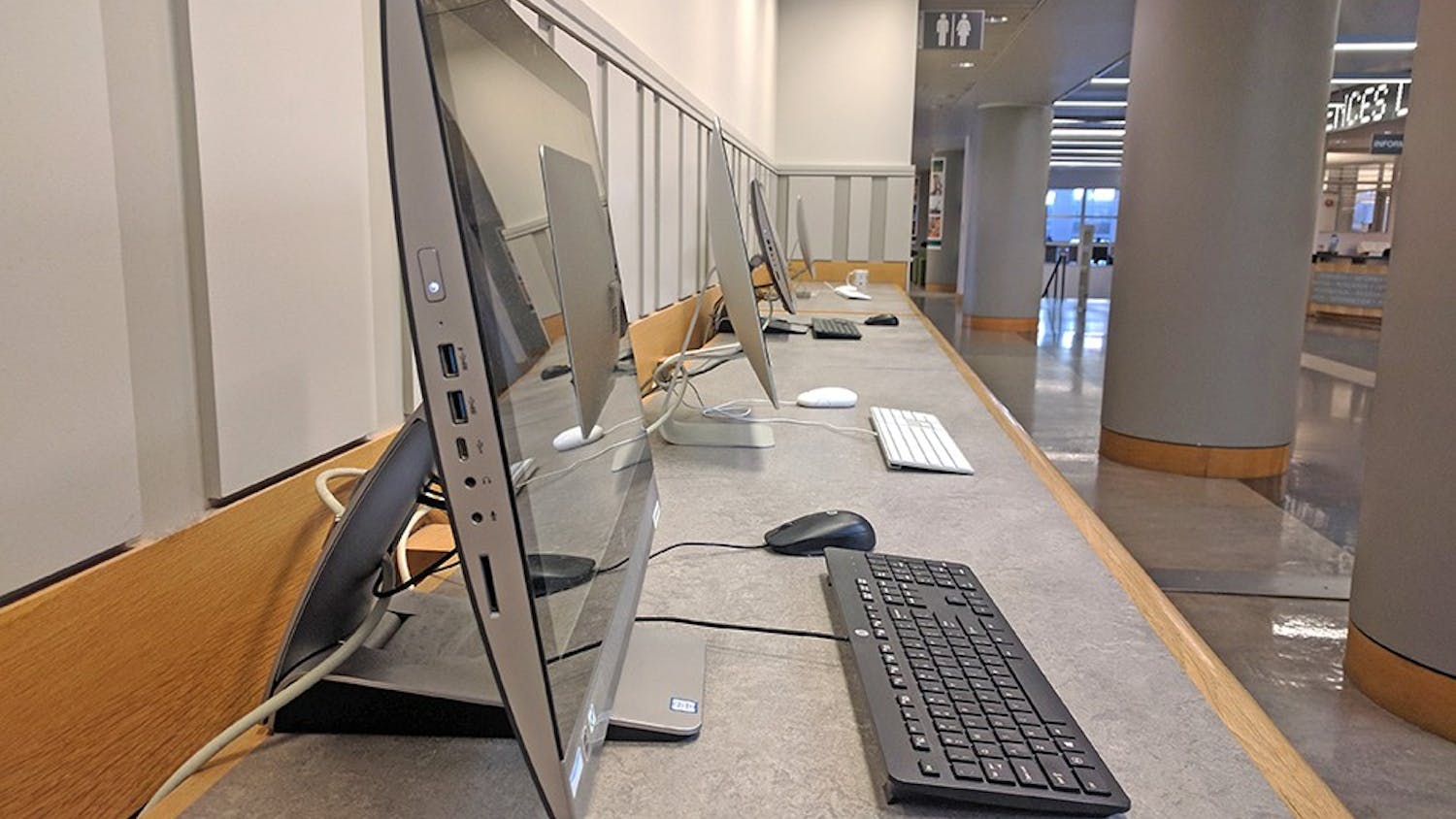While some on-campus employment opportunities have transitioned to a virtual format, others have been eliminated entirely for the remote spring term. These lost opportunities pose challenges for students who depend on them for income.
In an email statement to The Dartmouth, senior program manager for the student employment office Kari Jo Grant wrote that the College has allowed students to work remotely if their job allows it. She added that postings on Jobnet — the database for student job openings — have been updated to only show remote employment options.
Grant wrote that the College is currently exploring options for supporting students who receive work-study as part of their financial aid packages.
“Our main challenge is that not all work can be completed remotely,” Grant said. “Employers are working to develop opportunities as they are able.”
According to Grant, most of the jobs available to students this term have been offered through academic departments, such as learning fellowships and study group leader positions. Students interested in working remotely have filled out a temporary telecommuting contract.
Momi Tolentino ’20 used to work at Novack Cafe. This term, she is working as a Rockefeller Center for Public Policy media intern, learning fellow and study group leader for SOCY 1, “Introductory Sociology” and a CHEM 6, “General Chemistry” tutor for students in the Native American Program.
Tolentino said that Novack pays “very well,” especially given her over two years of experience, adding that “it's kind of hard to lose that source of income because it was a bulk of what I was earning.”
She said that she is trying to “navigate that, as I try to pay off things that I still have to pay off with the lessened income that I have now.”
Tolentino said that she reached out over spring break to sociology professor Kimberly Rogers about being a learning fellow. She said that Rogers also connected her to her job as an academic study group leader.
“It's nice to have someone in the faculty who cares deeply about not only how their students are doing academically, but also financially,” she said.
Most College tutoring services, such as the Student Center for Research, Writing and Information Technology, are still providing services. RWIT head tutor Mary Versa Clemens-Sewall ’20 said she and psychological and brain sciences professor and RWIT director John Pfister elected to continue running the center as they do on campus, offering virtual tutoring rather than face-to-face sessions.
“We decided that it would most honor our time, our mission, if we continue to do tutoring as close to the model that we have on campus as possible,” Clemens-Sewall said.
She added that all students who were previously employed with RWIT have the opportunity to be employed by RWIT this term. Pay rates remain the same and students are working similar numbers of hours to on-campus terms. In order to deal with students working from different time zones, RWIT asked tutors to pick hours within a 14-hour range, hoping that this would mirror student schedules.
Sanjana Dugar ’22, who works as an RWIT tutor this term, said that during her RWIT hours, she sits at her desk with Zoom open so that students who wish to “walk in” can send her a message over Zoom.
Dugar described the interpersonal aspect of virtual tutoring as “really tricky.” She said relationship building is an important facet of working as an RWIT tutor because it takes a lot of vulnerability for students to share their writing.
“As a tutor [you want to] put them at ease, start a conversation with them and kind of build up a little bit of an interpersonal relationship before going into anything that might put them on the defensive or that might make them feel uncomfortable or unsafe,” she said. “I’m definitely predicting that being able to emulate that kind of relationship online through Zoom will be different.”
Morgan Sorbaro ’20 had planned to work as teaching assistant on campus for COSC 10, “Problem Solving via Object-Oriented Programming” or COSC 52, “Full-Stack Web Development” this term. She is now working as teaching assistant for both classes, in addition to COSC 1, “Introduction to Programming and Computation.” Additionally, she works as a project manager and alumni relations lead at the Digital Applied Learning and Innovation lab.
Sorbaro added that due to the fact that all waitlisted students were admitted into COSC 1 this term following the move to online classes, the department hired a total of 63 TAs for the course, up from the regular 15.
Like Dugar, Sorbaro said that remote learning has created challenges in some of the more relational aspects of her work as a teaching assistant.
“As a TA, I've typically tried to form a community out of my section, and I feel like with this whole format of online, it's really hard to be there,” she said.
Sorbaro said that she reached out to several professors during spring break when she was unsure of whether she would have employment for the spring term.
Diego Perez ’23 is working as drill instructor for the Spanish and Portuguese department this term, a job that he also held on campus. He said that the Rassias Center developed a new method of training, designed specifically for this term, for drill instructors. During drill sessions, students click on a screen rather than answering verbal questions from a drill instructor.
Perez said drill instruction is “a social-interaction driven job,” and added that via Zoom, “it's so different, because you're not moving around the room, you're not engaging directly with a student.”
He only works about an hour each week remotely, instead of the six he would have worked on campus, as drill only happens once a week this term.
The College has also given students who work as undergraduate advisors the opportunity to remain employed during the spring term and receive their normal stipends in addition to the value of a spring 2020 meal plan, according to freshman UGA Maleah Wenzel ’20. Wenzel added that even those who chose not to work as undergraduate advisors this term have received a refund for the value of their meal plan.
She said that remote UGAs play a different role than in on-campus terms.
“We can’t decorate the hallways and do programming and things like that,” Wenzel said. “I think a lot of our job right now is just trying to like make sure that we're connected enough with our residents that they don't just fall through the cracks if they're having a very difficult time with transition ... and also making sure that they don't just completely disconnect from our community because of being off campus.”
Other students, such as Rachel Lorfils ’21, have pursued remote employment options outside of the College in order to replace income from campus jobs that were not able to continue remotely. Lorfils planned to work at the Collis Center and at the Hopkins Center for the Arts during the spring term — jobs she described as “directly physical” that required in-person attendance. She is now working for a remote tutoring company called BoldABC.
“As a student who has come from a low-income background, you kind of have to be flexible and be willing to adapt quickly when things like this happen because I do usually rely on my earnings from my campus jobs,” she said. “I basically support myself.”
Lorfils added that she posted about BoldABC in a GroupMe for remote employment opportunities. The group chat currently has more than 100 Dartmouth students.
Amanda Sun ’23 started a Facebook group called “Remote Work for Quaranteens” with her friend Evan Baldanado, a freshman at Stanford University, to help connect students with remote opportunities.
“I saw that a lot of students are currently either struggling financially or need help, and I thought this would be a good way to compile resources to address that need,” Sun said.
She said the group has over 600 members, a number that she said “speaks to the need of a group like this.”
Additionally, Idia Ihensekhien ’21 worked with Jhamar Youngblood MALS’20 to create the Mentor app, which connects students to remote employment opportunities and professional mentorship. Because many students had their internships canceled, Ihensekhien said that she wanted to create something that could help students not feel they are “collateral damage” of the COVID-19 pandemic.
College spokesperson Diana Lawrence stated in an email to The Dartmouth that the COVID-19 task force is consulting with the financial aid and student employment offices about possible solutions for student workers. She added that Dartmouth is currently “reviewing options” to assist financial aid students with work requirements and said the College hopes to “share more information soon.”
Dartmouth’s peers face similar complications. Princeton University states on its COVID-19 FAQ website that all students on financial aid who had previously worked for the university will receive accommodation pay for the duration of the term. On the other hand, similar to Dartmouth’s policy, the Harvard Crimson reported that Harvard will continue to pay students who can continue their on-campus jobs remotely, but is not offering employment or funds to students who cannot do so. The University of Pennsylvania posted on its website that “The federal government gives universities the option to continue paying students their work-study wages during disruptions caused by COVID-19,” and that therefore Penn is covering all student workers’ wages both in and out of the work-study program. Similarly, Cornell’s website says that under COVID-19 circumstances, unearned income is allowed for federal work-study student employees and that Cornell intends to continue to pay these students.




